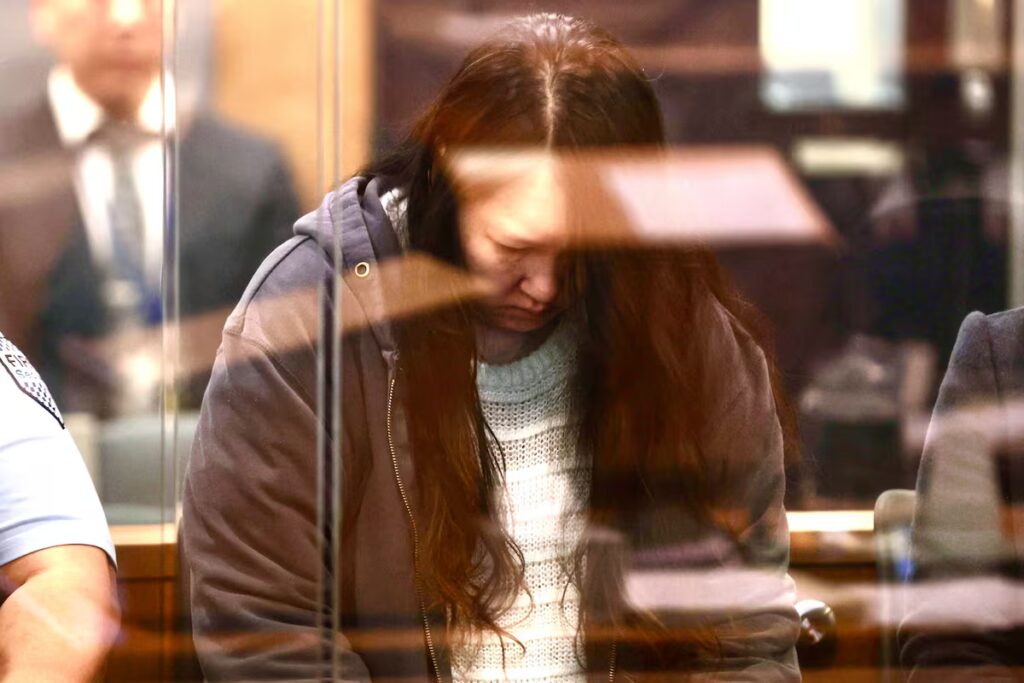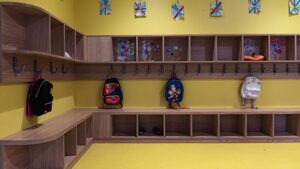
The sentence sentencing the woman who killed her two children to life imprisonment this Wednesday closed a case that shocked New Zealand public opinion. The High Court in Auckland (North Island) has confirmed the guilt of Hakyung Lee, 45, for the murders of Yuna Jo, eight, and Minu Jo, six. Another lower court ruled in January that this mother gave a lethal dose of drugs to the two children before packing their bodies in suitcases, which she left in a storage room, and leaving New Zealand for her native South Korea in 2018.
The bodies of the minors were discovered in 2022, when the contents of the warehouse were auctioned online after months of neglect. The couple who won the race later discovered the children’s bodies in the warehouse on the outskirts of Auckland, New Zealand’s largest city. By then her mother, who had changed her name, was already in her country, where she was arrested in September of the same year and extradited almost immediately.
Judge Geoffrey John Venning shared the prosecution’s view that the defendant, who emigrated to New Zealand as a young woman with her parents, knew exactly what she was doing and that her subsequent actions demonstrated that she had planned the murders. However, Venning ordered that Lee be initially treated in a secure psychiatric facility, before being sent to prison once her mental state is deemed acceptable.
The woman had admitted killing the children during the trial hearings, but had pleaded not guilty, citing a psychiatric disorder. Her defense had also argued that Lee’s mental health had worsened since 2017 following her husband’s death from cancer and that she was “deeply troubled” when he killed the children. This alleged disorder, lawyers said, led her to believe the only way out was to commit suicide and take the lives of her children, so her actions were not knowing under the law.
According to his lawyers, Lee also attempted suicide by taking a dose of the antidepressant nortriptyline mixed with juice, but, in his case, he miscalculated and woke up to discover that the children were dead. He then wrapped his children’s bodies in plastic before placing them in two suitcases which he then hid in the storage room before returning to South Korea.
The discovery of the bodies, four years later, by the couple who had purchased the contents of the abandoned warehouse caused a stir in New Zealand society, which dubbed the case “suitcase murder”. Police then began hunting for the killer using the children’s DNA samples and other clues that led to their mother’s trail in South Korea, where she lived under another name.
Prosecutors responded to the argument of alleged mental disorder by emphasizing that Lee actually wanted to “free herself from the burden of being a single mother” and that her actions were motivated by “selfish” motives.
A psychiatric assessment carried out before the sentencing, reported by New Zealand broadcaster RNZ, concluded that the woman was probably suffering from “atypical depression” and a prolonged grief reaction at the time of the murders.
The convicted woman must spend at least 17 years in prison before she is eligible for parole. The judge turned to her, saying, “You knew that what you were doing was morally wrong. Maybe you couldn’t cope with the illness and death of your husband and maybe you couldn’t bear to have the children around you as a constant reminder of your once happy life, which had been cruelly taken away from you.” Venning later accused the woman of killing two “particularly vulnerable” children.
Before the man’s death, the woman had already threatened to commit suicide and kill her children if her husband died, according to court documents obtained by RNZ.





